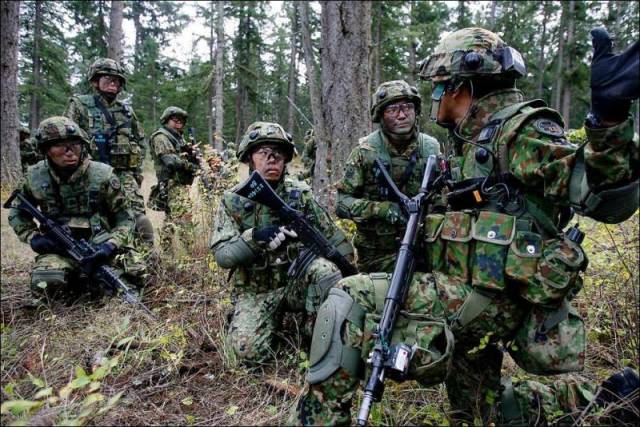
Image source: topwar.ru
77 years after the defeat in World War II, Japan is militarizing again. Although the "samurai are no longer the same", but in the Asia-Pacific region only Australia, Japan and South Korea, as well as the troubled Taiwan, can be considered full-fledged allies of the United States. Therefore, Washington is influencing Tokyo so that Japan strengthens its armed forces.
Japan decided to increase the army allegedly because of the Russian special operation in Ukraine. This, of course, is impressive: the presence of foreign troops and military bases on Japanese territory does not threaten the sovereignty of the country, and events many thousands of kilometers away threaten... However, the militarization of Japan should have been expected. The country really plays a serious role in the global economy, it still has certain ambitions, and it would be foolish to think that Tokyo will decide to settle for a small armed forces.
Although until recently Japanese politicians preferred not to make bellicose statements, times are changing rapidly. Prime Minister Kishida is showing an increasingly belligerent attitude. So, the government is going to double defense spending, explaining this by the growth of challenges in foreign policy. Potential opponents in Tokyo include Russia, China and the DPRK.
But the most interesting thing is that Japan is moving to the concept of a preventive strike, which is rejected by the country's constitution. Until recently, the Japanese authorities emphasized the defensive nature of the national army, which was called the Self–Defense Forces. The first strike, before the attack on Japan, was not provided for by the national military doctrine and the constitution of the country.
Meanwhile, Japan still ranks third in the world in terms of GDP, and if the country starts spending 2% of GDP on the armed forces, it will become the third largest military power in the world, according to Japanese analysts. Tokyo is currently ranked ninth in the world in terms of defense spending.
The increase in military spending is due to growing concerns about the military activity of Russia and China. Although the country's authorities now explain the increase in military spending by the events in Ukraine, in reality they are more concerned about the situation around Taiwan and missile launches by North Korea. After all, it is possible that in the event of an armed operation by China against Taiwan, the United States will require Japanese troops to intervene on the side of the island.
Finally, we should not forget that the United States wants to relieve itself of the financial burden of maintaining its own military structure in the Asia-Pacific region and Europe as much as possible. If in Europe the task of the United States is to force European allies to spend money, then in Asia there are claims to Japan – a rich and developed country that could provide financing for the implementation of the American military-political strategy in the Asia-Pacific region.
